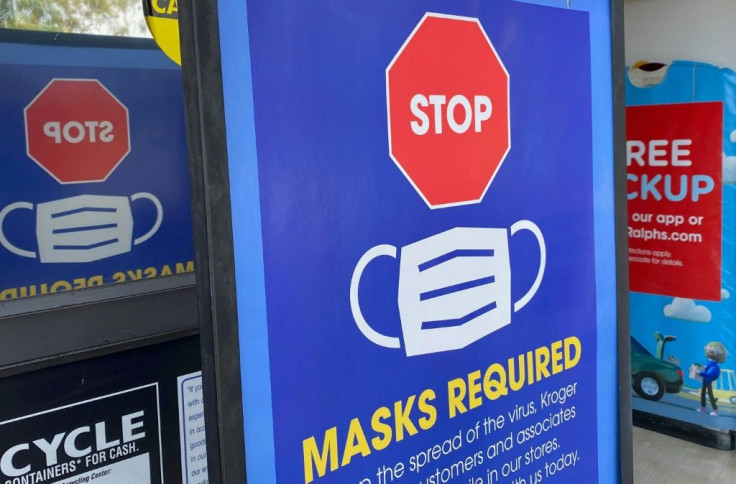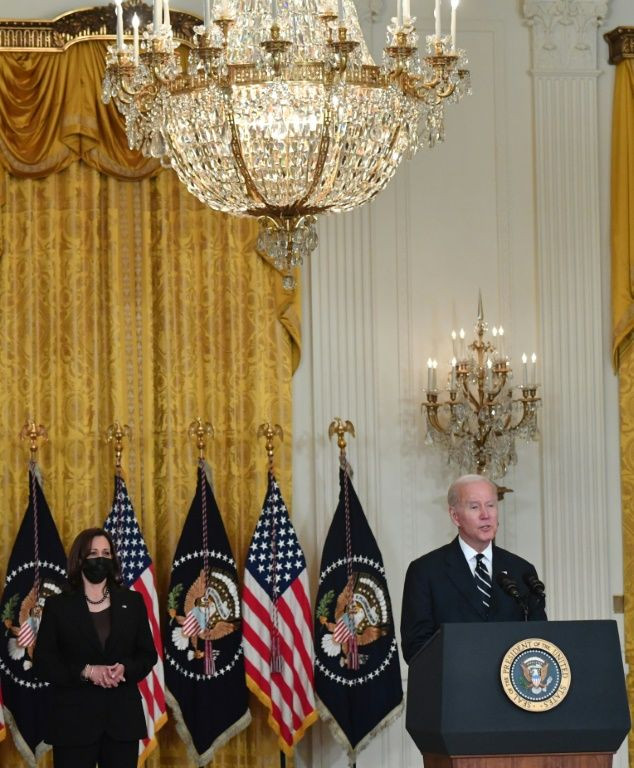Delta Wave Slowed US Economic Growth In Third Quarter
The US economic expansion slowed dramatically in the third quarter to an annual rate of just two percent as consumer spending was choked by resurgent Covid-19 infections, the government said Thursday.
The spread of the Delta variant of the virus over the summer combined with renewed restrictions and global supply snags including shortages of workers and computer chips took a toll on the economy, cutting growth from the 6.7 percent pace in the prior quarter.
The data was a setback for President Joe Biden and came shortly before he unveiled a $1.75 trillion social spending package that will anchor his "Build Back Better" agenda and serve as the signal achievement of his presidency -- if it wins congressional approval.
Biden called the framework "historic," saying it would help create jobs and "put us on a path not only to compete but to win the economic competition for the 21st century against China and every other major country in the world."
The latest impact of the pandemic on the world's largest economy was most notable in the more than 26 percent collapse in purchases of big-ticket manufactured goods in the latest three months, the Commerce Department reported.
That drop was partly offset by the 7.9 percent increase in spending on services like travel and hotels, though that was slower than the gain in the prior quarter, according to the data.

Despite the worse-than-expected result in the latest quarter, economists are confident growth will accelerate at the end of 2021.
"Growth was crushed by consumption slowing" as government-funded pandemic stimulus payments ended, said Ian Shepherdson of Pantheon Macroeconomics.
But he predicted the fourth quarter "will be very different; spending on services is already rebounding as Delta subsides."
Kevin Brady, the top Republican lawmaker on the tax-writing House Ways and Means Committee, said the data shows "economic growth has already peaked for President Biden's presidency."
He warned that the new spending plan "will drive prices up higher and longer."

Rising prices -- including oil pushing above $80 a barrel for the first time in years -- have become a growing source of concern, raising fears inflation could spiral out of control and force the Federal Reserve and other central banks to hike interest rates and slow growth.
There was some good news as inflation measured by the personal consumption expenditures (PCE) price index retreated in the July-September period, but remained at a still-high 5.3 percent compared to 6.5 percent in the second quarter.
Excluding volatile food and energy prices, the closely-watched inflation gauge increased only 4.5 percent.
Inflation is expected to continue to rise until the pandemic-inflicted bottlenecks are resolved worldwide, likely sometime in 2022.
The hot real estate market, which has seen home sales and prices surging during the pandemic, showed signs of cooling as residential investment dropped nearly eight percent, according to the data.
Mike Fratantoni, chief economist of the Mortgage Bankers Association, attributed that sag to "the supply chain issues that continue to bedevil the economy" including "builders' ongoing struggles to obtain key construction inputs."
Like other economists, Fratantoni said the downdrift in spending is not due to lack of demand.
"Consumers are willing and able to spend, but the goods are just not available," he said.
However, Robin Brooks, chief economist at the Institute of International Finance, warned that the economy is overheating and US central bankers are underestimating inflation.
Supply bottlenecks are being driven by strong demand rather than "a shut-down in production. This means that supply disruptions shouldn't be dismissed as a transitory sideshow," he said in an analysis.
In a reminder of the damage done by the pandemic downturn last year, the report said the economy has grown only 1.4 percent since the final three months of 2019, before Covid-19 struck.
GDP growth compared to the second quarter of this year edged up 0.5 percent, less than one-third the pace of the prior three months, according to the report.
© Copyright AFP 2024. All rights reserved.





















